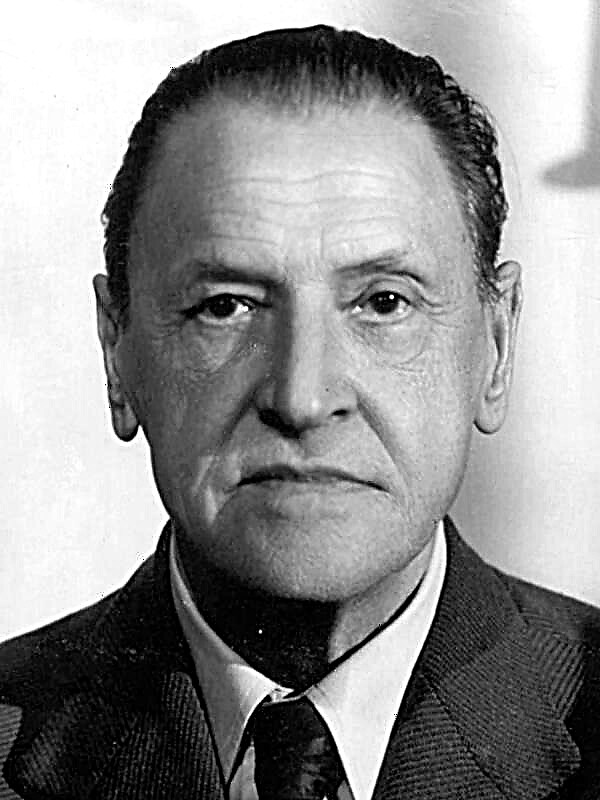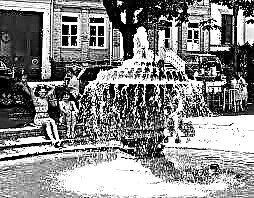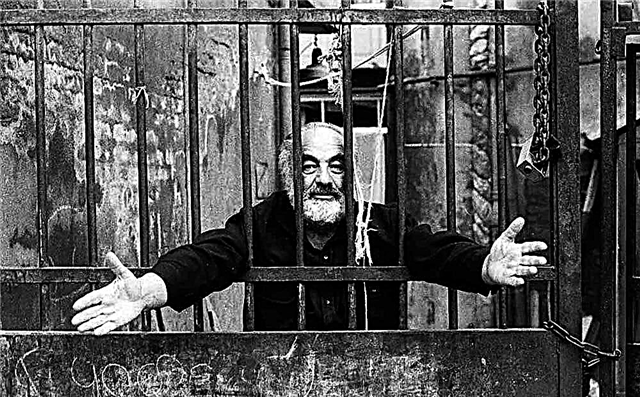The popular concept of free will is based on two statements:
- Each of us can behave differently than we did in the past.
- We are the conscious source of most of our thoughts and actions in the present.
Unconscious sources of will
We are aware of only a small part of the information that our brain processes. Although we constantly notice changes in our experience - in thoughts, moods, behavior, and so on - we are completely unaware of the neurophysiological events that create them. In fact, we are bad witnesses to our experiences. By looking at your face or listening to the intonations of the voice, others can often learn more about your state of mind and your motives than you yourself.
There will always be some lag between the initial neurophysiological events that will cause the next conscious thought and the thought itself. What will be the state of my mind in a minute? I don’t know - it just happens. Where is freedom in this?
Imagine an experiment: a control group of experimenters looks at a record of the mental processes taking place in your brain, along with videos of their associated behavior. As a result, experimenters know what you will think and do before you do this. You will continue to feel freedom at every current moment, but the fact that someone can foresee your thoughts and actions turns your sense of free will into an illusion.
The author admits that the arguments he collects against free will are not related to philosophical materialism - the assumption that reality is fundamentally purely physical. There is no doubt that the basic, if not all, processes occurring in your mind are the result of physical events. The brain is a physical system that is completely dependent on the laws of nature, and this already allows us to believe that changes in its functional state and material structure determine our thoughts and actions. But even if the soul is at the heart of the human mind, nothing will change in the author’s arguments. The unconscious actions of the soul give you no more freedom than the unconscious physiology of your brain.
Our sense of freedom is incorrectly assessed: we do not know what we intend to do until the intention arises. To understand this, you need to realize that we are not the authors of our thoughts and actions in the sense in which people usually assume.
The idea of free will comes from sensory experience. However, it is very easy to lose the vision of this psychological truth when we start talking about philosophy. There are three main approaches to the problem in philosophical literature: determinism, libertarianism, and compatibilism. Determinism and libertarianism are based on the fact that free will is an illusion if the underlying causes of our behavior are fully defined.
The only acceptable philosophical approach today that confirms the existence of free will is compatibilism, but we know that determinism regarding human behavior is true. Unconscious events in the nervous system determine our thoughts and actions, and they themselves are determined by previous events about which we subjectively have no information. However, the “free will" of compatibilists is not what most people are aware of.
People have many conflicting desires. You want to quit smoking, but you also long for the next cigarette. You are struggling to save money, but you are also attracted by the idea of buying a new computer.Where is freedom when one of these opposing desires inexplicably prevails over the other?
How can we be “free,” as conscious actors, if everything that we consciously do is a result of events in our brain that we are not able to plan and which we are not completely aware of?
Cause and investigation
From the point of view of generally accepted views on the possibility of human influence and existing morality, it seems that our actions cannot be products of our biology, the state we are in, or anything else that can allow others to predict our actions.
As a result, some scholars and philosophers hope that randomness or quantum uncertainty can make free will possible.
Choice, effort, intent
If you pay attention to your inner life, you will see that the emergence of choices, efforts and intentions is a mysterious process. Yes, you can do what you want, but you cannot ignore the fact that your desires are effective in one case and ineffective in another, and you certainly cannot guess in advance which of your desires will be realized.
For years you want to lose weight, but take it only at a certain point. At the same time, you did not determine which way to follow you should go on a diet or not, and which day to do it. You do not control your own mind, because you, as a self-conscious subject, are only part of the mind, living by the grace of other parts. You can implement your decisions, but you will not be able to predict what exactly you decide to do.
The author does not want to say that willpower is not important at all or that it will always be broken by the underlying biology. Willpower itself is a biological phenomenon. After thinking about this topic, most people come to the conclusion that our freedom lies in actions, and this often means preferring long-term goals to short-term desires. Definitely this is the ability that people possess to a greater or lesser extent and which is not inherent in animals, but nonetheless, the roots of this ability are in the unconscious. What I will do next and why, remains a mystery, which is completely predetermined by the previous state of the Universe and the laws of nature, including the contribution of chance.
One of the freshest ideas came from existentialism - perhaps it is the only useful one from all this direction. The idea is that we are free to interpret the meaning of our lives. You can consider your first marriage, which ended in divorce, “defeat” or look at it as a circumstance that contributed to your growth and was necessary for your future happiness. Different attitudes to the problem will lead to different consequences. Some thoughts lead to depression and frustration, others inspire us.
Let's think for a moment about the context in which our decisions arise. You do not choose your parents, time and place of your birth. You do not choose your gender and most of your life experience. You have absolutely no control over your genome or the development of your brain. And now your brain makes choices based on preferences and beliefs that were driven into it throughout your life by your genes, your physical development from the moment of conception, and the interactions that you had with other people, events and ideas. Is there free will in this? Yes, you are free to do what you want, even now. But where do your desires come from?
Could the truth be bitter?
Knowing (or highlighting) certain truths about the human mind can lead to bad psychological and / or cultural consequences. However, the author does not think that the publication of this book will cause a drop in morality among readers.
Becoming more sensitive to the prerequisites of the causes of his thoughts and feelings, a man, paradoxically, is able to more creative control over his life.
Moral responsibility
The US Supreme Court calls free will a “universal and unchanging” foundation for our legal system, different from the deterministic view of human behavior, which is incompatible with the foundations that underlie our criminal justice system. Any intellectual development that threatens free will will call into question the ethical practice of punishing people for their bad behavior.
It seems obvious that the desire for retribution is based on the idea that each person is a free author of his thoughts and actions. This idea is based on a cognitive and emotional illusion, and such a desire is immortalized by morality.












